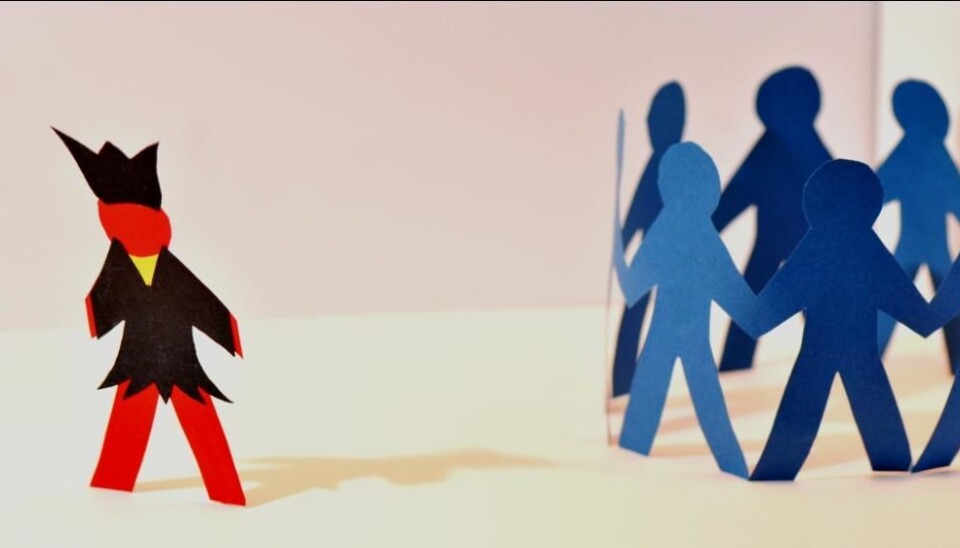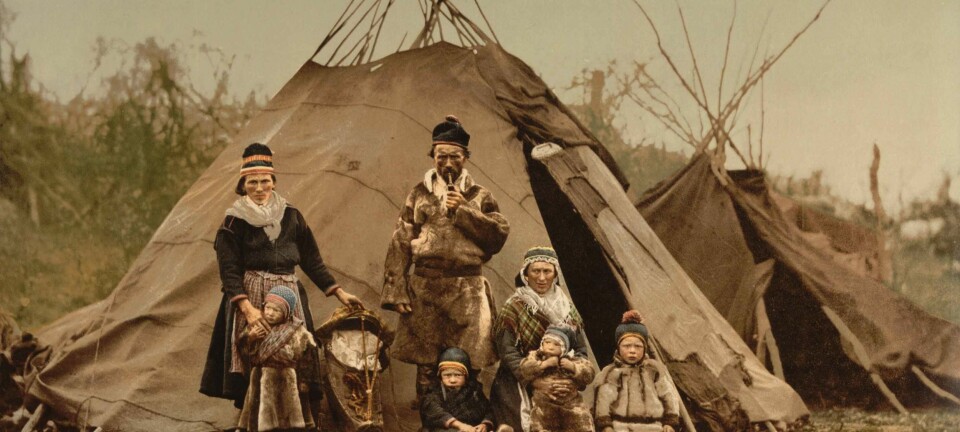An article from University of Tromsø – The Arctic University of Norway

Sami are stressed by bullying
The Lapps, or Sami people, experience ten times more discrimination than ethnic Norwegians. This leads to psychological stress and depression.
Denne artikkelen er over ti år gammel og kan inneholde utdatert informasjon.
Three and a half percent of the Norwegian majority population feel that they are subject to discrimination, that number for Sami-speaking Lapps is up at 35 percent.
The Sami who live outside the defined Sami language areas have it even worse than that − in that case, fully half have been discriminated against.
“In addition, in recent years, Sami report being bullied twice as often as the Norwegian majority. Those are dramatic numbers," says Ketil Lenert Hansen, at the Centre for Sami Health Research.
Discrimination can come in the form of the majority's lack of understanding and respect for the Sami language and culture. Sami-speaking people also experience significant communication problems in their interactions with state institutions, such as the health care services.

Hansen has studied how ethnic discrimination can be associated with health-related problems in the northern Norwegian population. He recently received his doctoral degree in community medicine from the University of Tromsø's Faculty of Health Sciences.
His thesis research involved an extensive demographic and health study in areas with Sami and Norwegian settlements. All told, 12,265 Lapps, people of Finnish descent living in northern Norway (known as Kven), and ethnic Norwegians in the northern part of the country participated in the questionnaire and health survey.
Hansen's results are startling.
Results showed that the more Sami markers you have, and if you live outside of the defined Sami areas, the more discrimination you will experience in your community.
High psychological stress levels
Hansen says that the consequences of discrimination result in many health effects, including greater psychological stress in the form of depression and anxiety symptoms.
The survey shows that Sami report having poorer health than ethnic Norwegians. Furthermore, the findings show that ethnic discrimination is associated with poorer self-rated health.
“Sami and Kven men report a slightly higher level of psychological stress than ethnic Norwegian men, while among the Sami and non-Sami women, there was no difference in reports of stress. This is in keeping with new findings from Sweden," explains Hansen.
Strong Sami women
Although Sami men experience far more stress than their fellow Sami women, it was actually Sami-speaking women who came off worst in the survey, purely in terms of health − particularly Sami-speaking women.
One out of two women who live outside of the defined Sami areas report that they have poor health. This can also be related to discrimination.
"They were asked questions about how their health is now, and half responded 'Poor / not very good'," says Hansen.
Despite this discouraging result, the women who reported poorer health still seemed able to master the negative consequences of discrimination better than other Norwegian women.
According to Hansen if we look at the stress levels of those who are being discriminated against, Sami women had lower levels than the Kven and the ethnic Norwegians.
The reason for this may be that Sami women see discrimination as a result of their Sami background and not because of who they are as human beings.
“Being discriminated against on the basis of your ethnicity is perhaps not as personal for you as a Sami. An ethnic Norwegian could certainly interpret discrimination far more personally," he says.
Fewer seek help
There are also big differences in who seeks help for mental health problems.
The study shows that Sami-speaking women are less likely to seek help for their psychological problems compared to Sami women who have Norwegian as their mother tongue, Kven and ethnic Norwegian women.
Nine percent of all Sami women seek help, while the figure for ethnic Norwegian women is 15 percent.
There is almost no difference in this number among men. Hansen has a theory as to why Sami-speaking women are less likely to seek help than other women.
He thinks the Sami people do not have a tradition of talking about psychological problems, so they tend to keep these problems within the family. It may also have to do with the religiously rooted concept of 'the evil ear', which means that many Sami believe that they will become sicker if they talk about mental or physical illness.
Illness is seen as a punishment for having done something wrong, which in turn means that the disease or illness itself is perceived as shameful.
According to the researcher it may also be due to the language, simple communication problems at the doctor's appointment. It may be that because of language difficulties, many Sami have a hard time explaining what is troubling them. This may mean that they are not sent onward in the system to receive the additional care they might need.


































